Fluid Restriction Guidelines For CKD
Chronic kidney disease (CKD) is a serious and potentially life-threatening condition that affects millions of people around the world. It's important for CKD patients to adhere to fluid restriction guidelines in order to avoid unnecessary fluid overload.
In this article, we'll discuss what these guidelines are, why they're so important, and how everyone can help those with CKD by following the necessary steps.
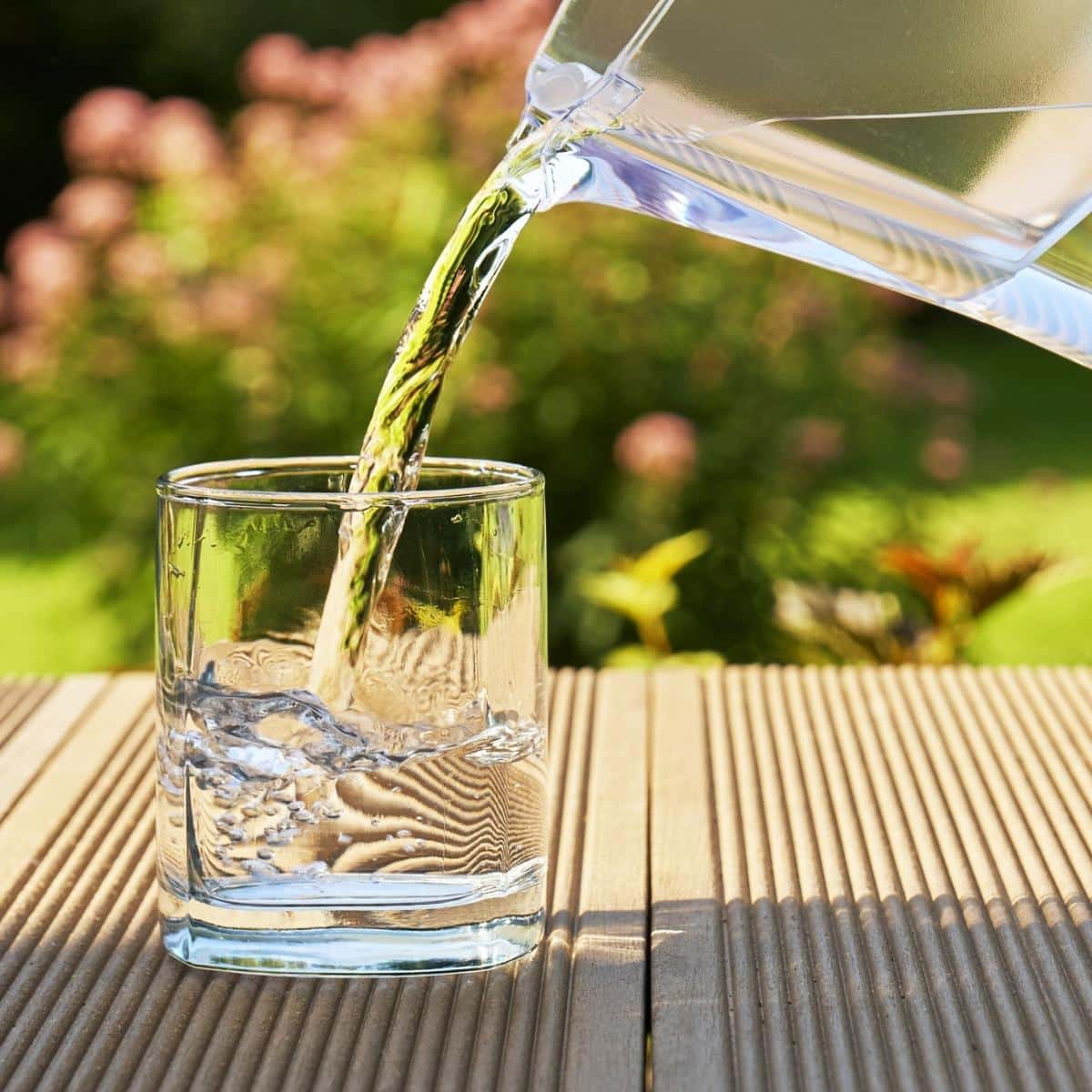
Living with CKD isn't easy; however, it doesn't have to be overwhelming either. By understanding the importance of proper fluid management, individuals living with or caring for someone who has been diagnosed with chronic kidney disease can take proactive measures to ensure their health and wellbeing.
With clear guidance from medical professionals and an informed approach from family members, loved ones affected by CKD will feel more empowered in managing their condition - ultimately leading to better outcomes for all involved.
Fluid restrictions can be one of the most difficult parts of living with chronic kidney disease and following a kidney diet plan. Almost daily people are told to stay hydrated, drink plenty of fluids, and to drink lots of water.
As a general rule, most people are recommended to drink eight glasses of water a day or more. Chronic kidney disease can drastically change these instructions, and in fact can almost completely reverse them.
Jump to:
- What Is Chronic Kidney Disease?
- Why Is Fluid Restriction Necessary For CKD?
- How Much Fluid Should A Person With CKD Drink?
- What Are The Symptoms Of Dehydration In CKD?
- What Types Of Foods Are High In Fluid?
- What Types Of Fluids Should Be Avoided?
- How Can I Track My Fluid Intake?
- How Can I Ensure I'm Getting Enough Nutrients While On Fluid Restriction?
- Are There Any Natural Supplements That Can Help With Fluid Restriction?
- What Other Steps Can I Take To Manage My CKD?
- Frequently Asked Questions
- Proper Fluid Restriction Can Help You Live Your Best Life Even With CKD
What Is Chronic Kidney Disease?
It is a condition in which the kidneys don't function properly, leading to a buildup of waste products in the body. Its causes can include diabetes, high blood pressure, and genetic disorders.
Symptoms of end-stage kidney disease may include fatigue, loss of appetite, nausea, and swelling in the hands and feet. For those with CKD, fluid restriction is often recommended to help manage the condition. There is also food for your stage of chronic kidney disease.
For More Recipes and Ideas --->> Get Your Free Meals and Recipes That Are Perfect for Pre-Dialysis Diets, Pre-Dialysis with Diabetes, or Dialysis Diets.
Causes Of CKD
Chronic Kidney Disease is a long-term illness that affects the kidneys and their ability to filter waste from the blood. It can be caused by a variety of genetic, environmental and lifestyle factors, making it an incredibly complex condition.
Knowing what causes CKD can help patients take steps towards preventing or managing this debilitating disease.
One cause of CKD is genetics; some people are born with certain conditions that make them more likely to develop renal failure later in life. An example is polycystic kidney disease.
Environmental factors such as diet and lifestyle factors can cause hypertension and diabetes mellitus, which are two major conditions that lead to developing CKD.
Other lifestyle habits such as smoking, having an unhealthy diet, not exercising regularly, and drinking too much alcohol (alcohol and dialysis) can also increase one's risk for kidney disease.
It’s important that those at risk for CKD make modifications to their lifestyles in order to reduce their chances of developing the condition. Eating plenty of fruits and vegetables each day, avoiding sugary drinks or alcoholic beverages altogether, staying active on a regular basis and quitting smoking are all great ways to keep your kidneys healthy and strong.
Additionally, if you have any family history of kidney problems, then it might be worth talking to your primary care physician about ways you can prevent further issues down the road.
By being aware of these potential causes of CKD, you can make proactive decisions regarding your health so you don’t find yourself facing renal failure later in life due to neglecting preventive measures.
Keeping up with dietary modifications, getting screened regularly and living a generally healthy lifestyle will ensure that your body stays fit and functioning properly for many years ahead!
Symptoms Of CKD
It's important to recognize the signs and symptoms of CKD early on so that you can make necessary lifestyle changes and seek appropriate medical care. Unfortunately, many of these are nonspecific.
Common symptoms include fatigue, nausea, decreased appetite, trouble sleeping, decreased urination frequency or urine volume, puffiness around the eyes or ankles, shortness of breath, muscle cramps and pain in the lower back.
If left untreated, these symptoms may worsen over time leading to more serious issues associated with renal failure. As a result, it’s essential to be aware of any potential warning signs your body might give off so that you can act quickly if needed.
Making dietary modifications like following a low-sodium diet and eating more vegetables can help reduce some of the symptoms related to CKD. Additionally, exercising regularly will also benefit individuals with this condition since physical activity helps keep your control of blood pressure levels balanced which is key for proper functioning kidneys.
Lastly, seeking supportive care from specialists is another great way to manage CKD effectively; your healthcare team including your doctors are trained to provide their patients with tailored treatment plans depending on their individual needs and following clinical practice guidelines.
Early detection of CKD through regular screenings is beneficial because it allows people at risk to take proactive measures before things get worse.
Furthermore, making small but impactful lifestyle changes such as switching up one’s diet or incorporating exercise into daily routines will not only prevent further damage down the road but also have positive effects on overall wellbeing too!
All in all, understanding what causes CKD as well as being mindful of its various symptoms are both very important pieces when it comes to taking control of your health and living a healthy life despite chronic illness.
You can manage your control of blood pressure when you know how to manage your fluid intake in ounces per day.
Why Is Fluid Restriction Necessary For CKD?
Fluid restriction is important for chronic kidney disease patients because it can help reduce the strain on the kidneys and lower the risk of complications.
This is because people with limited kidney function have less capacity to regulate and filter fluids that enter the body, compared to those with healthy kidneys. Utilize these fluids to hydrate with kidney disease.
Without restricting daily fluid intake, patients can experience swelling, weight gain, and an increase in blood pressure, all of which can be damaging to their health.
Not restricting fluid can be dangerous, so it's important to follow the fluid and dietary guidelines set by your kidney doctor to ensure your health is protected and prevent further EGFR decline.
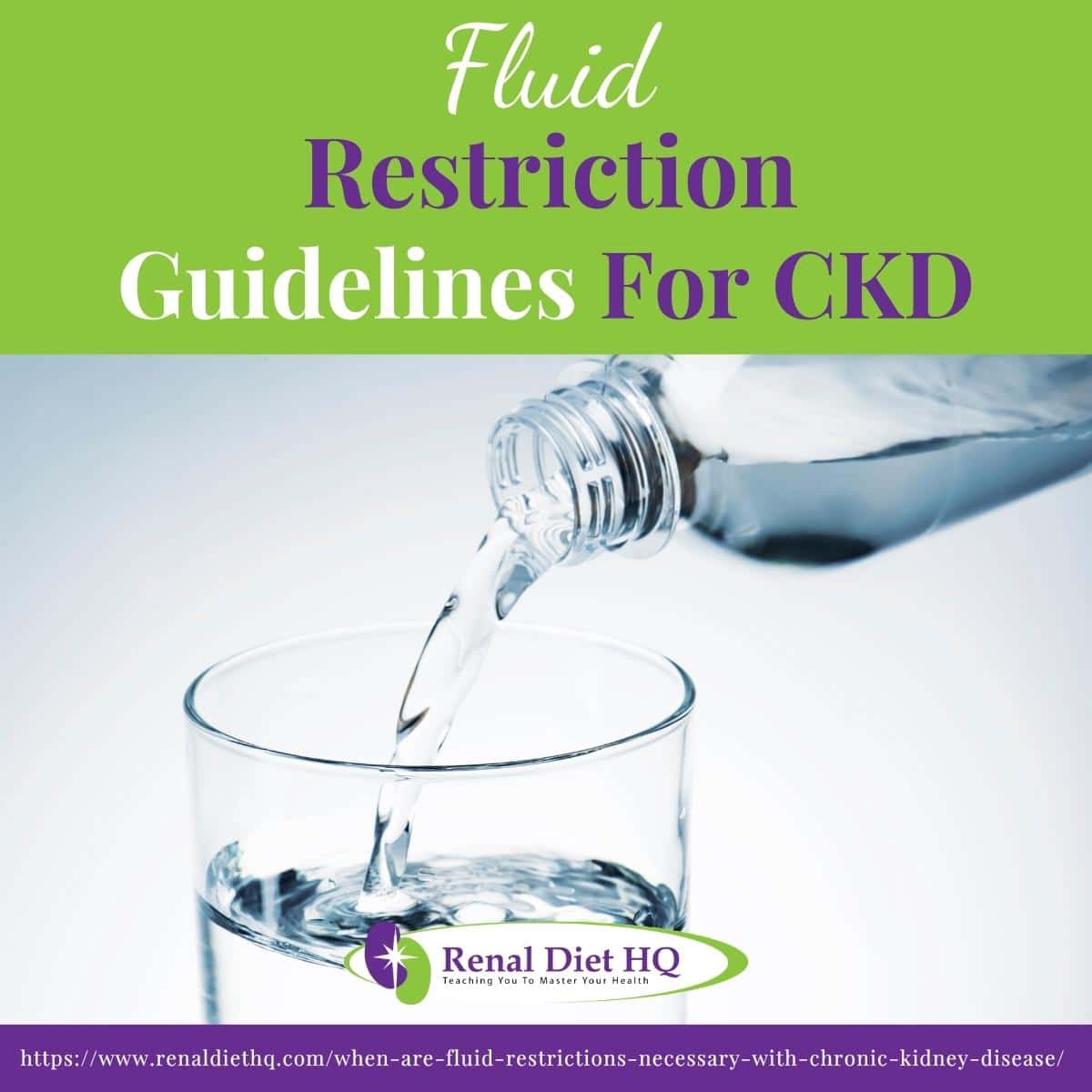
Benefits Of Fluid Restriction
Living with chronic kidney disease (CKD) can be a difficult and stressful journey. But by following the recommended fluid restriction guidelines, you can help manage your symptoms and reduce the risk of further complications.
Restricting fluids not only helps to maintain fluid balance in your body, but it also offers many other benefits that are important for chronic kidney disease patients.
Here are three key benefits:
Reducing fatigue – For those with CKD, reducing fluid intake can help reduce feelings of tiredness and exhaustion throughout the day.
Prevents fluid retention– Limiting fluids while keeping sodium intake low helps to keep blood pressure under control by preventing fluid retention.
This is particularly important as uncontrolled hypertension puts stress on kidneys over time, leading to further complications.
Monitoring weight – Keeping track of your body weight is essential when managing CKD since rapid changes can be an indication of a worsening condition or fluctuations in fluid and electrolyte levels.
By monitoring how much you drink each day, it becomes easier to check for any sudden increases or decreases in your weight due to water retention or dehydration respectively.
Limiting intake of fluids helps to reduce strain on your kidneys with already limited renal function. By doing so, you'll also benefit from avoiding potential electrolyte imbalances which could lead to serious medical issues like swelling, congestion, or high blood pressure.
Additionally, restricting fluids can make adhering to renal diets easier as well as provide hydration while staying adequately nourished without overloading your system.
By understanding the importance of fluid restriction for CKD patients and taking advantage of various available resources, we can empower ourselves and live as normally as possible while living with a chronic illness.
Risks Of Not Restricting Fluid
Not following the recommended fluid restriction guidelines can have serious consequences for those living with CKD. It puts your electrolyte balance at risk and could cause further complications like swelling or high blood pressure.
Too much fluid can accumulate in your body such as in your lungs, abdominal cavity, hands, feet, or eyelids. Hence, it's important to monitor your intake of fluids closely, so always seek medical advice if you feel unsure about how much is appropriate for your condition as everyone’s needs are different.
Additionally, there are plenty of healthy alternatives such as sugar-free popsicles or ice chips which help prevent dehydration and quench thirst without all the added sodium content that regular drinks would offer.
By taking advantage of these options and adhering to renal diets, we can get closer to achieving our health goals while maintaining an adequate level of hydration – something worth striving for!
How Much Fluid Should A Person With CKD Drink?
It's important for people with CKD to understand their fluid intake recommendations and electrolyte balance.
They should talk to their doctor about how many ounces of water they need to drink each day (based on their urine output and glomerular filtration rate) and how to regulate their electrolyte balance.
It's also important to be aware of any signs that the body is not getting enough fluids, such as dizziness or confusion.
By keeping up with these guidelines, they'll be able to keep their CKD symptoms under control.

Fluid Intake Recommendations
When you're dealing with CKD, it's important to understand the right amount of fluid intake for your body. When we talk about fluids, this includes everything from water and other liquids to foods rich in moisture like fruits and vegetables.
As a general rule of thumb, people with moderate to severe levels of CKD should aim for under 1-2 liters (34-68 ounces) of total daily fluid consumption.
This can be achieved by drinking plain or flavored water throughout the day as well as eating high moisture content foods such as soup, melon, cucumber, grapefruit, applesauce, and yogurt. You may also want to consider including some low sodium fruit juices into your diet if tolerated by your taste buds!
It’s essential that those with CKD make sure they are getting enough fluids without going over their recommended limit. Fluid sources must be monitored carefully since extra fluids may not be regulated well by your body due to reduced kidney function.
Your doctor will likely advise monitoring your weight on a daily basis so that any sudden changes caused by retention of excess fluid can be identified quickly and corrective measures taken accordingly, like placing you on a fluid restricted diet.
In addition to watching out for too much liquid intake, it is equally important for people with renal issues to ensure their diets are packed full of nutrition – especially vitamins and minerals which help keep kidneys healthy - while being mindful not to exceed prescribed limits on sodium and potassium levels set by healthcare professionals.
Eating plenty of fresh fruits and veggies provides natural fibers along with many vitamins naturally found in these types of food groups. Here are a few water rich foods to keep in mind.
Getting enough hydration is key when managing kidney disease but don't forget: moderation is the name of the game here! Be aware of what goes into your glass or plate at meal times while keeping track of how much fluid you consume each day in order to stay within safe parameters suggested by medical experts.
That way, you'll have peace of mind knowing you're taking care of yourself every step along the path towards better health management!
Electrolyte Balance
Now that we understand how important getting the right amount of fluids is for those with CKD, it’s also important to recognize the role electrolytes play in managing this condition.
Electrolytes are essential minerals like sodium and potassium which help regulate fluid balance as well as other essential functions like muscle contraction and nerve transmission.
So, having imbalances can contribute to symptoms like dehydration and fatigue. Keeping a healthy diet which includes avoiding processed, and fast foods will go a long way towards preventing mineral imbalances and helping manage water levels better.
Maintaining an appropriate level of both sodium and potassium intake via your daily dietary choices is key, but don't forget about other vital minerals including magnesium, calcium, phosphorus, chloride and bicarbonate - these all work together to keep us feeling our best!
Hydration isn’t just about drinking enough water or liquids; it’s equally important to ensure you are consuming sufficient amounts of electrolytes through food sources too.
Making sure there's adequate hydration combined with optimal electrolyte balance gives your body what it needs to prevent dehydration-related issues from occurring down the line.
The importance of finding the right balance between hydration and electrolyte levels cannot be overstated when dealing with CKD – proper management today sets you up for feeling your best daily!
What Are The Symptoms Of Dehydration In CKD?
Some symptoms of dehydration include fatigue, dry mouth, dizziness, and headaches. For people with CKD, these symptoms can be even more severe, including dark-colored urine, decreased average urine output, dry skin, and muscle cramps.
Additionally, they may experience confusion, irritability, sunken eyes, low blood pressure, rapid heart rate, increased thirst, and even fainting. Let's discuss all of these symptoms in more detail.
Fatigue
The fatigue that accompanies dehydration in CKD can be overwhelming. It's more than just feeling tired, it's a deep exhaustion that seems to sap your energy and motivation to do anything.
Fortunately, there are steps you can take to manage the fatigue and get on with living life. Identifying triggers is key when managing fatigue; things like stress, lack of sleep or exercise, unhealthy eating habits and not drinking enough water all contribute to feelings of exhaustion.
Making lifestyle changes such as getting regular restorative sleep, engaging in relaxation activities for stress relief, exercising routinely, and choosing healthy foods will help reduce fatigue symptoms over time.
The combination of these actions is essential for maintaining an active lifestyle even while dealing with dehydration in CKD – no matter how hard it may seem at times!
Dry Mouth
When it comes to the symptoms of dehydration in CKD, dry mouth can be especially uncomfortable. It's important to recognize that having a dry mouth isn't just an annoying sensation – left untreated, it can lead to more serious oral health issues like cavities and infections.
Fortunately, there are treatments available to help alleviate this symptom of dehydration. These include using simple strategies such as drinking your water allocation frequently in small sips or using saliva substitutes like saline sprays or oral lubricants.
Additionally, good mouth hygiene is essential for reducing feelings of dryness; brushing twice daily with a soft-bristled brush and flossing regularly should become part of your routine!
Finally, following hydrating strategies such as eating foods high in water content (like watermelon) and limiting drinks containing caffeine and alcohol (alcohol and dialysis) will also ensure optimal hydration levels which can help reduce the discomfort associated with dry mouth.
What Types Of Foods Are High In Fluid?
When it comes to fluid-rich foods, fruits and vegetables are great options. Dairy, grains, and soups can also be high in fluid. Juices, smoothies, and popsicles are also high in fluid, as well as ice cream and gelatin.
Nuts, seeds, salads, beverages, and snacks are all also good sources of fluid. All of these should be considered when following fluid restriction guidelines for CKD.
Fruits
When it comes to eating fruits with chronic kidney disease, there are a few key things to consider in order to limit daily intake of fluid. Portion size plays an important role, since larger portions of fruit can contain more water than smaller ones.
Additionally, you should be conscious of how much potassium is in the fruit juice you choose - look for those that are low-potassium.
Finally, having knowledge on the approximate water content of each piece of fruit helps you stay hydrated without exceeding your daily fluid restriction guidelines.
With careful consideration while snacking on kidney friendly fruits you'll have plenty of delicious options while adhering to your diet plan.
Vegetables
Now that we've discussed the importance of portion control (portion control for CKD patients) staying mindful when eating fruits with chronic kidney disease, let's explore another important category of foods to consider - vegetables!
While it is still essential to practice portion control and pay attention to sodium and potassium levels, there are some great vegetable substitutes for those who may be restricted from certain types of food. Give this kidney friendly vegetable dip a try!
Low-sodium recipes can also help you maintain healthy eating habits while limiting your fluid intake. Eating fresh or frozen veggies like kale, spinach, carrots, bell peppers, onions, celery and more are all good options as they contain a lot of water but not much salt.
Overall, if monitored properly by adhering to suggested portions sizes and low-sodium recipes where applicable, vegetables can provide lots of vitamins and minerals without overloading on fluids.
Dairy
Which cheese is good for ckd patients? Now, let's move on to the topic of dairy sources. Dairy products like milk, cheese and yogurt have high fluid content, but also contain important electrolytes that help keep our bodies balanced. However, for those with kidney disease, there are great alternatives!
Soy milk can provide similar nutrition without adding too much extra fluid into your diet. Additionally, almond milk (almond milk side effects on kidneys) or coconut-based milks are lower in calories and have added benefits such as being free from lactose or gluten.
For example, drinking a cup of unsweetened almond milk has nearly half the amount of sodium than a cup of skim cow’s milk does, so it is an ideal switch if you're trying to reduce your fluid intake.
Moreover, swapping out dairy foods for these other options may be beneficial for people who need to control their blood sugar levels due to diabetes.
What Types Of Fluids Should Be Avoided?
The delicate condition of those with CKD can make some beverages risky. The most obvious type of fluid to avoid is alcohol in any form.
Alcohol consumption increases urine output which can worsen dehydration and disrupt electrolyte balance, both of which contribute to symptoms such as fatigue or dizziness.
Can coffee hurt your kidneys? Caffeine-containing drinks like coffee, tea, and energy drinks also increase urine production, so it's best to limit them too.
It's not just liquids either; foods high in sodium are another risk factor for complications from CKD. As a general rule, people on a restricted diet should consume less than 2 grams of salt daily (the equivalent of 1 teaspoon). These tips will help you learn how to season food without salt.
Processed foods tend to have higher levels of sodium than fresh options do, so check labels carefully before buying items at the grocery store.
Making wise dietary choices while managing your condition can help lower your risk when it comes to potential health problems related to fluid restriction guidelines for CKD patients.
How Can I Track My Fluid Intake?
It may seem challenging to keep track of how much fluid you have consumed at first. Fortunately, there are many methods available that can help, including tracking apps, hydration calculators, and simple journaling.
Let’s look at them one by one so you can see what may work best for you.
Tracking Apps
Tracking your fluid intake can be hard, but thanks to technology, there's help available! Tracking apps are a great way to stay on top of your daily water tracking and modifications to your diet.
With these helpful tools, you can easily keep track of how much fluid you're taking in each day and ensure that it meets the recommended guidelines for CKD patients.
The accuracy of such mobile usage is also very reliable; users report feeling more confident about their progress as well as better health overall after using them.
You'll find plenty of options when choosing an app to meet your needs. Some offer customizable plans based on user input while others provide ready-made recommendations based on diagnosis. Depending on what suits you best, any app could be the right choice for tracking your fluid intake accurately.
No matter which app you choose, make sure that you understand all features before committing—some may require extra purchases or subscriptions to access certain functions like reminders or additional data analysis.
However, if used correctly they can be invaluable resources in helping manage CKD-related dietary restrictions and promoting healthier living habits. Learning how to manage chronic kidney disease will happen with time.
It might feel overwhelming at first, but with proper guidance and support from tracking apps, it’s possible to maintain healthy lifestyle practices even during restrictive measures due to chronic kidney disease. Start exploring today and see what works best for you!
Hydration Calculators
Tracking your fluid intake is an important part of managing chronic kidney disease, and hydration calculators can be a helpful tool in doing so. With these digital tracking tools, not only can you monitor your daily water intake but also keep track of electrolyte balance to ensure that it meets the recommended guidelines for CKD patients.
Furthermore, they can provide useful diet adjustments as well as lifestyle changes which could help improve overall health. So if you're looking for extra assistance with managing your fluid intake, try using a hydration calculator!
It's an easy way to stay on top of your daily needs and make sure that you're staying healthy despite any restrictions due to CKD.
Journaling
For those looking to take their tracking progress old school style, journaling can be a great way to stay on top of your fluid intake. It allows you to establish goals that are tailored specifically for you and helps keep you motivated towards reaching them.
And when it comes time for positive reinforcement, writing down successes or milestones achieved can help remind you why it's important to remain mindful about your drinking habits.
Plus, if there ever comes a time where things feel like they're slipping out of control, then having an accessible written record at hand will give you the necessary information needed to make adjustments quickly and effectively.
So if staying up-to-date with your hydration levels is something you strive for, try keeping a notebook or two around - it could prove invaluable in helping ensure that everything runs smoothly!
How Can I Ensure I'm Getting Enough Nutrients While On Fluid Restriction?
It’s important to ensure that you are getting all the nutrients your body needs. People with chronic kidney disease may need to adjust their diet and fluid intake in order to maintain adequate nutrition levels for optimal health.
Here's how you can manage cravings, do dietary research, and monitor kidney health while following fluid restriction guidelines:
Monitor what you eat - Make sure that foods like vegetables, fruits, whole grains, lean proteins and dairy products make up most of your daily calorie intake. Avoid processed or sugary snacks as much as possible.
Track fluids - You should be mindful of not only the amount of liquids you take in but also where they come from. Water is always a great choice! If you're craving juice or soda, opt for lower-sodium varieties.
Research dietary options - There are plenty of resources online that provide information on which foods are best for managing symptoms associated with CKD such as high blood pressure or anemia.
Read through these carefully before making any changes to your diet so that you know exactly what foods will benefit your kidney health in the long run. However, it is still best to speak with your doctor and renal dietitian first before making any drastic dietary changes.
Manage cravings - It can be difficult to manage urges for unhealthy snacks when following a restricted diet plan but there are ways around it!
Try reaching for nutrient dense alternatives such as nuts or yogurt if you feel like treating yourself without going overboard on calories or sodium content.
By keeping track of your daily food and fluid intake, researching new healthy recipes tailored towards people with CKD, and learning how to better manage cravings over time, you'll be able to keep up with the recommended fluid restriction guidelines while still maintaining proper nutrition levels necessary for good overall health!
Are There Any Natural Supplements That Can Help With Fluid Restriction?
Many people with chronic kidney disease (CKD) may find that fluid restriction is an important part of their treatment. Fortunately, there are natural supplements available that can help to reduce the need for strict guidelines regarding how much liquid they take in each day.
Herbal remedies, sodium intake reduction, and finding substitutes for fluids such as sugar-free alternatives can all play a role in reducing the amount of water taken into the body.
Herbal remedies have been known to be effective at helping rid the body of excess fluid. Many herbs, like parsley root and dandelion leaf, are diuretics which promote urination and therefore remove extra liquid from the system without causing dehydration or other adverse side effects.
Additionally, herbal teas made from ginger root and nettle leaves work to increase daily urine output by stimulating your kidneys making them more efficient in expelling waste products and excess water from your system.
Sodium intake should also be monitored closely when dealing with chronic kidney insufficiency patients who must adhere to fluid restrictions. High dietary salt consumption increases thirst levels, leading to undesirable consequences if too much liquid has already been consumed during the course of any one day.
Monitoring signs such as elevated blood pressure, fluid gain due that can lead to swelling, and headaches caused by high salt concentrations will alert physicians quickly when adjustments are necessary so appropriate action can be taken before further damage occurs.
Fluid substitutes can provide an additional option for those looking for something else other than plain water while still staying within their prescribed limit set forth by doctors or renal dietitians working with CKD patients.
Sugar free options such as seltzer waters or tea sweetened only with honey instead of white sugar offer refreshment without contributing unwanted carbohydrates or calories into one's daily caloric allotment allowed under many diets given to people suffering from this condition.
It is important for individuals managing chronic kidney insufficiency through careful watching of their fluid intake to understand what resources are available beyond just drinking less fluids throughout the day.
With some research on herbal remedies and knowledge about proper sodium and sugar intake limits, these individuals can easily supplement their restricted lifestyle without sacrificing health benefits associated with avoiding over hydration issues common among those living with this chronic medical disorder.
What Other Steps Can I Take To Manage My CKD?
Managing Chronic Kidney Disease can be overwhelming, but there are steps you can take to help improve your health. Monitoring your diet is important for managing CKD; limiting salt and fluid intake, eating healthy foods high in fiber, and avoiding fast food (fast foods that are okay for kidney disease) or processed snacks should all be considered.
Additionally, it’s essential to manage stress levels as chronic stress has been linked to progression of kidney disease. Identifying coping strategies such as mindfulness meditation or deep breathing exercises may help reduce overall stress levels.
Improving sleep quality is also a key factor in managing CKD. Establishing a regular bedtime routine that eliminates screens from the bedroom an hour before sleeping will leave you feeling more refreshed throughout the day.
It's also important to avoid certain medications when dealing with CKD - some commonly used over-the-counter pain relievers have been known to cause further damage to already weakened kidneys.
Seek advice from your healthcare provider if necessary on what drugs are safe for use with existing kidney conditions.
Finally, having support from loved ones during this time makes a world of difference in managing CKD effectively.
Don't hesitate to ask family members or friends for assistance when needed – whether it’s emotional support or just someone to talk through treatment plans with you – knowing that others are there for you can make the journey easier.
No matter how difficult it may seem at times, taking these steps towards self care could mean significant long term benefits for those living with CKD.
Frequently Asked Questions
Exercise routine, water intake, and salt intake are all important elements of managing fluid restriction. In addition to diet and supplements, you can also track your daily fluid intake.
You may also review any medications that could affect your fluid balance, and establish an exercise routine. It's also important to know commonly prescribed medications for CKD.
All these methods help ensure proper hydration levels for those with CKD while avoiding excessive amounts of fluids.
Managing fluids is an important part of maintaining a healthy level of fluid balance. Knowing how long to follow the fluid restriction guidelines will help you keep your fluid intake and loss in check.
It's important that you don't over- or under-consume fluids for too long, as it can affect your overall health and lead to more serious issues with your fluid levels.
The duration of time required to follow these fluid guidelines depends on your individual needs, so be sure to discuss any concerns with your doctor.
Yes, fluid restriction differs throughout the stages of kidney disease. While all CKD patients should partake in regular medical advice and monitoring, those with advanced stages of kidney disease, especially end-stage renal disease, may need to have more stringent measures and limits put into place.
This includes medication effects, exercise guidelines, symptom management, and even updated fluid restrictions based on their current stage of the condition.
With these extra precautions in place, it's possible to better manage your health while providing yourself with an improved quality of life.
When it comes to managing fluid restriction for CKD, lifestyle adjustments can make a world of difference! Taking the time to try alternative therapies, monitor your fluid intake, and track dehydration prevention are all key steps - but just as important is making small lifestyle modifications.
Whether it's swapping out salty snacks for low sodium alternatives, or scheduling regular breaks for physical activities – these simple shifts in routine can significantly help with regulating your body’s fluid levels.
It can be difficult to balance social drinking with fluid restriction guidelines, but it's not impossible. The best way to approach this is by speaking to your doctor or healthcare provider about a plan that works for you.
They will likely recommend reducing the amount of alcohol consumed and monitoring your fluids closely, as well as incorporating an exercise program.
Ultimately, each individual should follow their medical advice when navigating social drinking while following fluid restriction guidelines.
Proper Fluid Restriction Can Help You Live Your Best Life Even With CKD
Following fluid restriction guidelines for CKD can be a difficult process, but it's important to adhere to them in order to keep your body healthy. Taking the time to understand what is best for you and making lifestyle changes will help make this easier. You can pay attention to which fluids to hydrate with kidney disease.
The potential dangers of not following through with fluid restrictions can be life threatening, so your doctor's orders should be taken seriously. Use this information to better understand the reasons for fluid restrictions and how to navigate them a little easier.





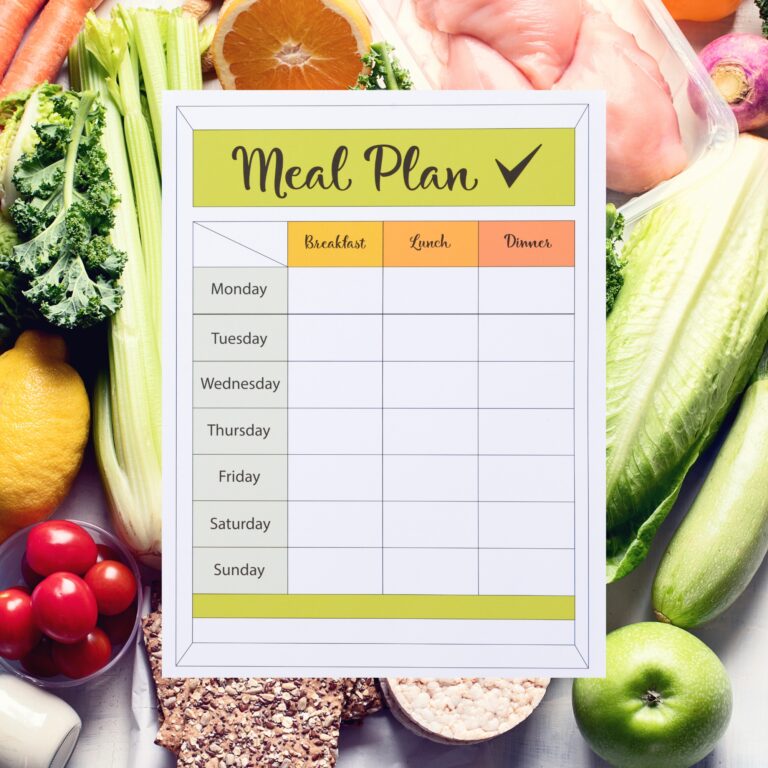
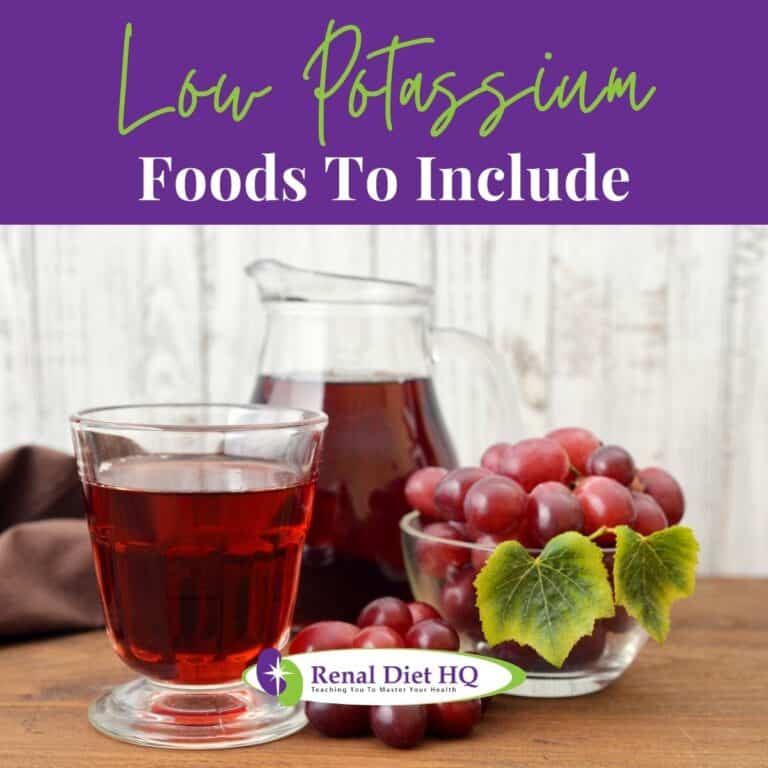

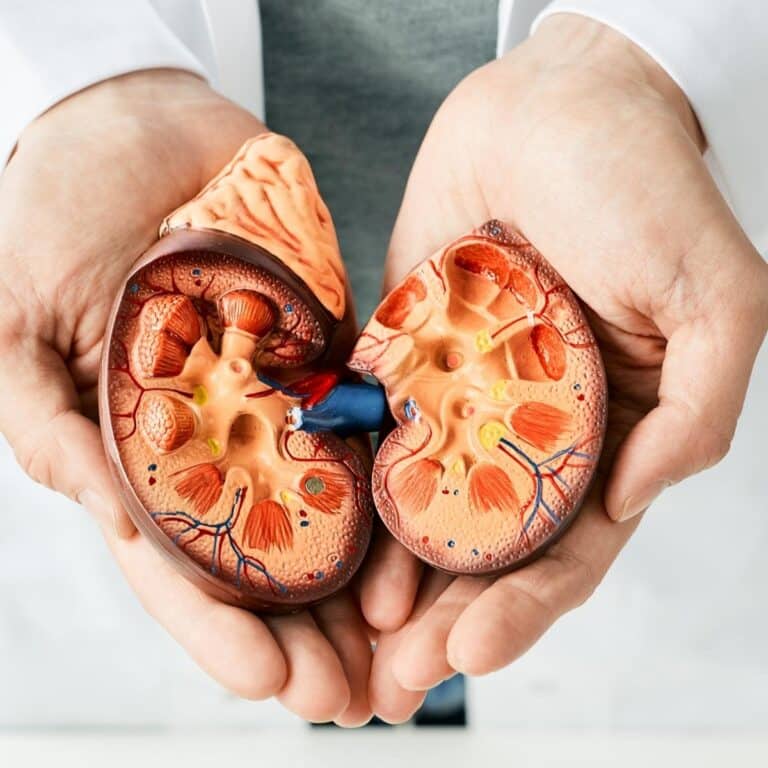
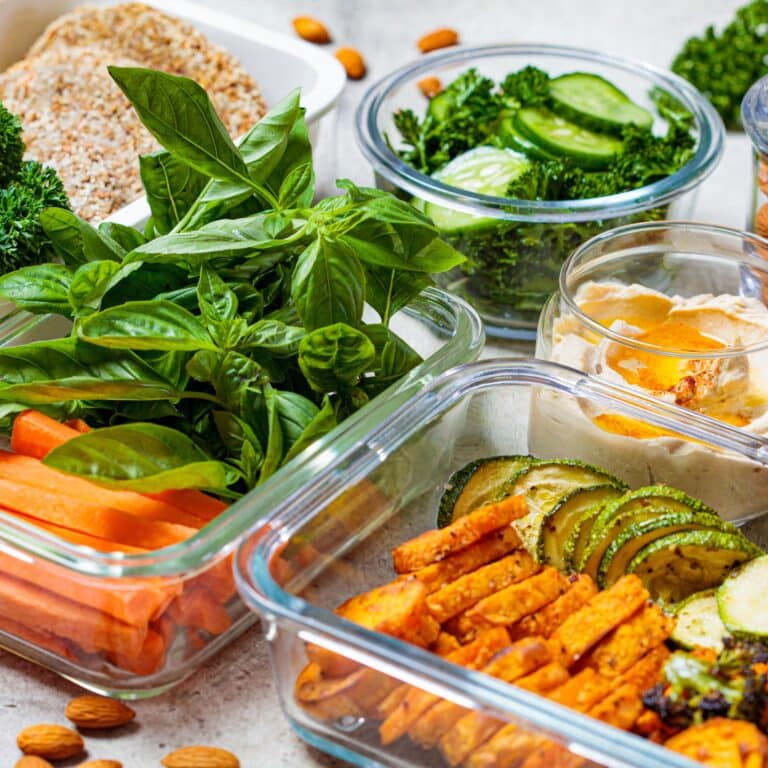


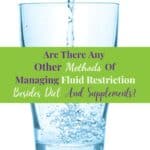
If you have stage 3bCKD can you have a beer once in a while.